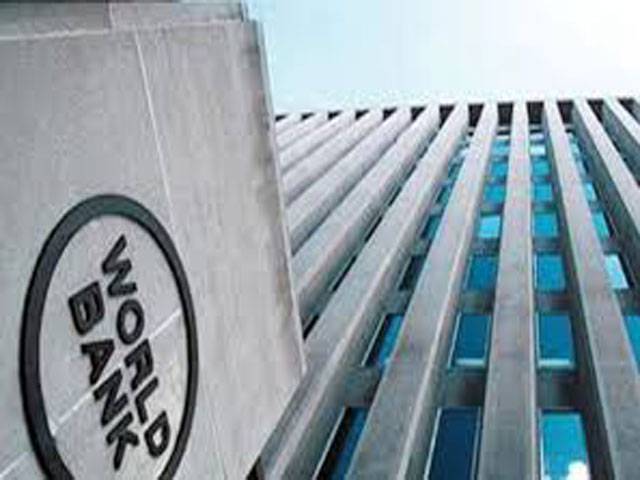ISLAMABAD-The World Bank’s Board of Executive Directors has approved $236 million in grants and credits to support Pakistan’s efforts to enhance learning and healthcare, and address COVID-19 threats to human capital accumulation.
The Khyber Pakhtunkhwa Human Capital Investment Project ($200 million) and Balochistan Human Capital Investment Project ($36 million) will improve public services in education and health, which are the building blocks for human capital accumulation. The projects aim to increase the productive capacity of the workforce to bolster future economic growth in Balochistan and Khyber Pakhtunkhwa.
Apart from this loan, the State Bank of Pakistan (SBP) on Wednesday has received $1billion — $500 million each from World Bank (WB) and Asian Development Bank (ADB) to facilitate the country during its fight against coronavirus. Pakistan has received this amount under COVID-19 Active Response and Expenditure Support (CARES) program. The CARES program is facilitated by parallel cofinancing of $500 million each from the Asian Infrastructure Bank (AIIB) and the World Bank to support Pakistan in addressing the challenges from COVID-19.
“Education and healthcare are at the heart of Pakistan’s vision for inclusive growth to enable its people to reach their greatest potential,” said Illango Patchamuthu, World Bank Country Director for Pakistan. “Human capital is about investing early in children and families. The COVID-19 pandemic threatens to roll back human capital accumulation in Pakistan and decisive actions are needed now to reduce losses through targeted interventions supported by the two projects.”
These investments will help address barriers to access education and health services, particularly among low-income, vulnerable communities, where utilization of essential health services, especially primary care, and school enrollment rates are lower.
In Khyber Pakhtunkhwa, the project will reach 25 percent of the population and help the government increase the availability, utilization and quality of healthcare services in areas most affected by the pandemic. Education activities focus on learning opportunities for children at the primary and secondary school levels, particularly for girls and women, and take into account disruptions resulting from COVID-19.
For Khyber Pakhtunkhwa Human Capital Investment Project, the IDA credit is $75 million. The terms of maturity of loan are 30 years and grace period is 5 years. The project will improve public services in education and health, as the building blocks for human capital accumulation. It aims to increase the productive capacity of the workforce to bolster future economic growth in Khyber Pakhtunkhwa.
“Investments in education and health services are crucial to strengthen Pakistan’s most important asset, its people,” said Cristina Panasco Santos, Task Team Leader for the Khyber Pakhtunkhwa Human Capital Investment Project. “The project will help address persistent human capital deficits that limit current and future economic development in the province.”
In Balochistan, the project will support the government to improve service delivery by upgrading schools and health facilities in four districts, increase accountability of service providers by strengthening community engagement, and improve efficiencies in service delivery systems.
For, Khyber Pakhtunkhwa Human Capital Investment Project, the IDA credit is $6 million. The terms of maturity of loan are 30 years and grace period is 5 years.
“Improvements in health and education services, especially in early childhood, have large payoffs for children and their families, by improving livelihoods and future opportunities to generate wealth,” said Yi-Kyoung Lee, Task Team Leader for the Balochistan Human Capital Investment Project. “The project serves as a model through synergistic interventions in education and health to bolster human capital accumulation in Balochistan.”
Both projects are financed from the IDA18 regional sub-window for host communities and refugees. Pakistan applied for and became eligible to access the sub-window in 2017. In addition to the two projects approved today (yesterday), the Balochistan Livelihoods and Entrepreneurship Project and the national Strengthening Institutions for Refugee Administration were approved on March 3, 2020. Together, the four projects leverage $128 million of grant funds, in addition to concessional financing from IDA, to support poor and vulnerable households living in select districts of Balochistan and Khyber Pakhtunkhwa.
Thursday, April 18, 2024
WB approves $236 million for Pakistan

IHC restores Bushra Bibi's appeal for shifting to Adiala Jail from Bani Gala
1:24 PM | April 18, 2024
Punjab CM taking steps for public welfare: Ex-minister
April 18, 2024
54 students of NUML visit Parliament House
April 18, 2024
Aleem Khan stresses to double NHA’s revenue
April 18, 2024
AGP report discloses irregularities in BRT project
April 18, 2024
Hepatitis Challenge
April 18, 2024
IMF Predictions
April 18, 2024
Wheat War
April 18, 2024
Rail Revival
April 17, 2024
Addressing Climate Change
April 17, 2024
Justice denied
April 18, 2024
AI dilemmas unveiled
April 18, 2024
Tax tangle
April 18, 2024
Workforce inequality
April 17, 2024
New partnerships
April 17, 2024
ePaper - Nawaiwaqt
Advertisement
Nawaiwaqt Group | Copyright © 2024





